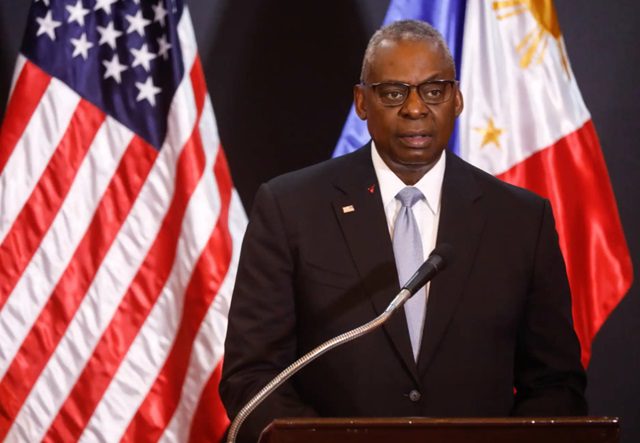BTN News: In a surprising and important decision, United States Defense Secretary Lloyd Austin has canceled a plea deal with three men accused of being behind the September 11, 2001, terrorist attacks. This decision, announced on Friday, August 2, 2024, has big consequences for the case. The canceled deal had allowed the accused to plead guilty and avoid the death penalty, but now the death penalty is back on the table.
Secretary Austin’s memorandum from the Pentagon explained his decision to revoke the plea agreements with Khalid Shaikh Mohammed, believed to be the mastermind of the attacks, and his partners, Walid bin Attash and Mustafa al-Hawsawi. All three men have been held at the Guantanamo Bay detention camp since 2003 without a trial. Along with this decision, Austin also removed Brigadier General Susan Escallier from her role in the case, as she had negotiated the plea deals.
Austin highlighted the importance of the decision to enter into pretrial agreements with such high-profile defendants. He said that such a critical decision should be his responsibility. This move shows a change in the government’s approach, indicating that all possible sentences, including the death penalty, are now being considered again.
The defendants are charged with planning the worst terrorist attack on U.S. soil. On September 11, 2001, 19 hijackers took control of four commercial airplanes. Two of these planes were crashed into the Twin Towers of the World Trade Center in New York. Another plane hit the Pentagon just outside Washington, D.C. The fourth plane crashed in a field in Pennsylvania after passengers tried to regain control. These attacks killed nearly 3,000 people and had a huge impact on the nation.
The charges against Mohammed, bin Attash, and al-Hawsawi include conspiracy, murder in violation of the law of war, attacking civilians, and terrorism. Mohammed, who was educated as an engineer in the United States, is said to have come up with the idea to hijack airplanes and crash them into important buildings. Prosecutors claim he presented this idea to Osama bin Laden in 1996 and then helped train and lead the hijackers.
Canceling the plea agreement highlights the complicated and changing nature of the legal proceedings related to the September 11 attacks. This decision shows the ongoing struggle to balance justice, national security, and the rule of law. The outcome of this case will likely have wide-reaching effects on how the United States deals with terrorism-related prosecutions in the future.
This new development brings back a debate that has been going on for over twenty years: how to properly seek justice for the events of September 11, 2001. It also puts a spotlight on the controversial use of the Guantanamo Bay detention facility and the legal processes connected to it. The facility has been criticized internationally because of its use of indefinite detention and allegations of torture.
As the case moves forward, it is expected to get a lot of attention both in the United States and around the world. The possibility of seeking the death penalty for these high-profile defendants will be closely watched and debated by legal experts, human rights advocates, and the public. People everywhere will be watching how the United States handles this complicated legal situation while trying to uphold principles of justice and human rights.
Revoking the plea agreement is a key moment in the ongoing effort to get justice for the victims of the September 11 attacks. It highlights the seriousness of the crimes committed and the importance of a legal process that reflects how severe those actions were. As the case continues, it will likely keep influencing how the United States responds to acts of terrorism and holds those responsible accountable.


